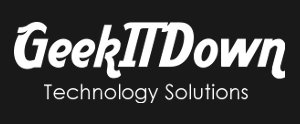We’re constantly asked about anti-virus software and which ones we recommend. Along those lines we run into questions about other quality software to handle the usual PC tasks. Today we look at some of the picks we always recommend and you should be using now.
Anti-virus
This one is the easiest by far. Microsoft Security Essentials (MSE) is the best anti-virus period. It is free, which is not to say it works any less than paid anti-virus, in fact it’s better. MSE is updated automatically with Windows updates and since it comes from Microsoft you can trust the source and know that it integrates nicely into the Windows environment. MSE isn’t bloated with things you don’t need like additional firewalls or fear inducing identity protection (here’s a tip, there’s no such thing). Windows already comes with a built-in firewall which is more than enough for home users. MSE is ligthweight meaning it takes up far less space than a lot of the ‘security suites’ out there.
Features are what you’d typically find with any anti-virus, a schedule, color coded alert system, automatic cleaning, white-list locations and automatic scan of downloaded files. Here’s a little something to keep in mind, the Windows 8 developer preview comes preloaded with MSE which indicates that future versions of Windows with ship with MSE already installed. Now would be a great time to familiarize yourself with it.
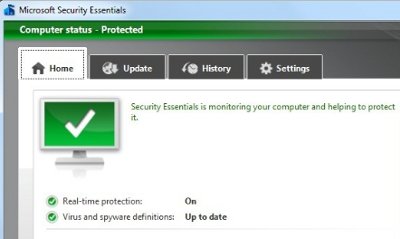
Download Microsoft Security Essentials
Browser
This one is tough to answer depending on the question. Is your primary objective speed, standards, extensions, security, simplicity? Let’s work backwards from that list.
Simplicity
If all you want is simplicity, stick with Internet Explorer (IE) for Windows and Safari for Mac. It doesn’t get any simpler than IE, it comes pre-installed and will open any webpage without issue, but with that simplicity comes danger as well. IE is the most attacked browser because of flaws and holes in the coding so it’s up to you to be aware of your browsing security.
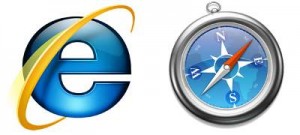
Security
Which leads us to security. In terms of out-of-the-box security, they are all better than IE, but still vulnerable to web threats. We recommend Firefox with extensions as the best choice for a browser with top security. Extensions or add-ons add effects to the browser to change the way it behaves or looks. Frankly, to use Firefox without them is missing the point. Extensions like NoScript and AdBlock Plus are essentials. A close second and worth mentioning is Opera because of it’s built-in security features. While not as well known as some of the others, Opera is a great browser and worth a look if you want to try something outside the norm.
Extensions
Extensions we’ve already touched on and we’ll continue to recommend Firefox. A very close second is Chrome. It used to be Firefox had the developers to continue propagating new add-ons at a feverish pace, then Chrome came along and suddenly developers flocked to the new platform and so the amount of extensions has somewhat leveled out across the playing field. Chrome has a lot of useful extensions, in fact we use many of them daily, likewise for Firefox. The main difference we see is quality. Firefox keeps a stronger view over the extensions while Chrome is minimally maintained, much like the Android market. Firefox has well established extensions and continues to have new ones added so you can’t go wrong in choosing it as your browser of choice.
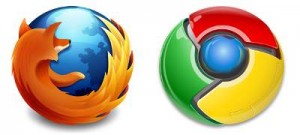
Standards
Chrome is our choice for standards. Google takes a definitive stance on web standards as a whole so there is no real surprise that they lead the way with adjusting their browser to support the latest and greatest in web development. Close seconds are Firefox, Opera and Safari. Sorry IE users, IE still lacks in this category.
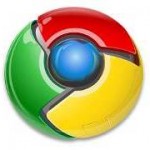
Speed
This one could get debated forever. Speed tests will show browser A is faster than browser B until browser B gets a beta update or a different test is run. We won’t debate speed tests, they are what they are. What we will do is recommend for speed based on real world usage and performance. Our recommendation is Opera with Chrome coming in second. Chrome is fast to open, no question, but opening is only part of the process. The browser needs to open and load a page, in this case the homepage quickly. Opera does both of those things faster than Chrome. Opera also loaded pages beyond the initial startup faster than Chrome, in fact at times Chrome was sluggish compared to Opera. Note, even at sluggish, Chrome is easily number two in terms of speed.

All browsers mentioned were tested on Windows with Chrome, Firefox and Opera additionally tested on Linux. We based test results for Google’s browser using Chrome not Chromium. For what it’s worth, Chromium was much faster and more responsive on Linux.
Download Chrome
Download Firefox
Download Opera
Download Safari
Speed Enhancement Software
There is no such thing. If you want to speed up your system, the number one most important thing to change is your anti-virus. If you’re using an all-in-one suite or bloated anti-virus software package then your system is being taxed every time you boot up. The next options are to use the disc cleanup and defragment tools provided within Windows by default. There are some additional tweaks with startup that are useful, but will not be listing because layman use can wreak havoc on a system if done improperly.
Many will say third party software is an option. Third party software can clean out old data and files, but that is not “speeding up” a PC, it’s performing a function that may or may not increase speed based on the amount of cleanup they can do. We recommend against using them unless you are a tech professional who understands what everything means. Many of those software options affect system registry and that’s not a good idea even for techs. If you must use one, then we recommend DrivePurge, but we still advise calling a professional if your system is so slow that you feel the need to use software like that.
Download DrivePurge
Your Thoughts
Those are our top three field questions. What do you agree or disagree with? Do you have other suggestions for our readers? Let us know in the comments!
If you enjoyed or found this article useful, please show us some support by liking us on Facebook or by sharing us on your favorite social website. Thanks!
